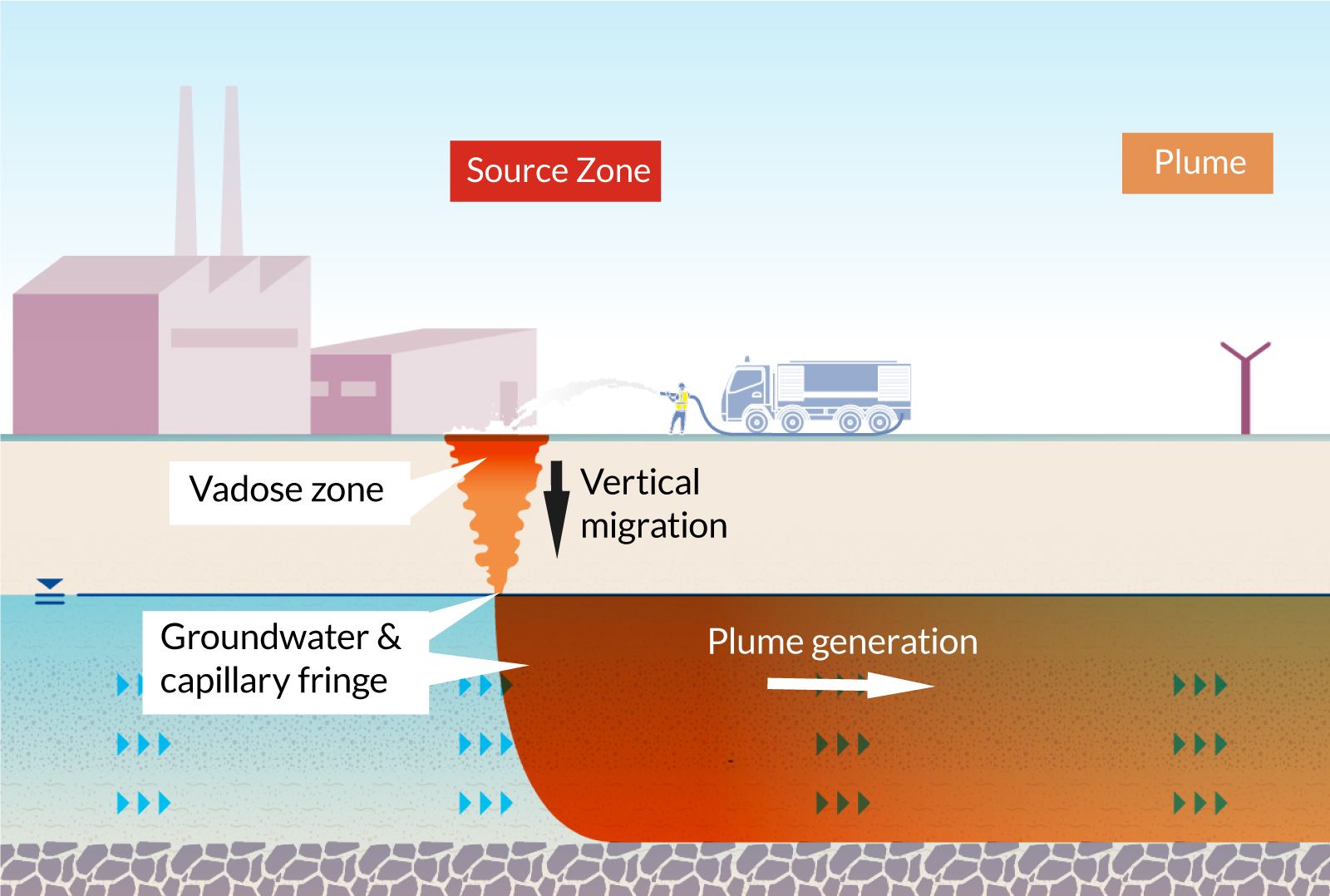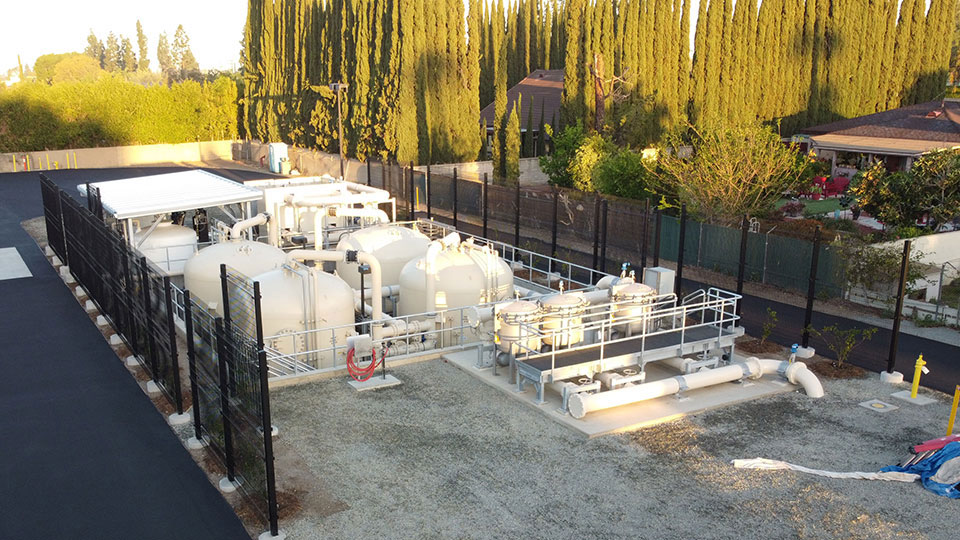Exactly How PFAS Therapy Guarantees Tidy and Lasting Water
The visibility of PFAS, frequently known as "for life chemicals," poses considerable difficulties to water quality and public wellness. The ramifications of these therapies extend past prompt health benefits; they raise critical concerns concerning long-lasting water administration techniques that need to be resolved to ensure a durable future.

Understanding PFAS Contamination
PFAS, or per- and polyfluoroalkyl compounds, have emerged as a significant environmental worry as a result of their prevalent frequency and perseverance in the setting. These synthetic chemicals have actually been used in different commercial applications and consumer products, consisting of non-stick pots and pans, waterproof apparel, and food product packaging, due to their one-of-a-kind properties such as water and grease resistance.
The contamination of soil and water sources by PFAS happens largely via commercial discharges, firefighting foam usage, and seeping from garbage dumps. pfas management. Once launched, these substances are resistant to degradation, leading to their build-up in the atmosphere. This perseverance raises important problems, as PFAS can take a trip lengthy distances through groundwater and surface area water supply, impacting alcohol consumption water supplies and environments

Wellness Risks of PFAS
The persistence of PFAS in the atmosphere raises considerable health and wellness concerns for individuals revealed to these substances. Research has actually linked PFAS direct exposure to numerous unfavorable health effects, including immune system disorder, liver damage, and boosted danger of particular cancers cells.
The ubiquity of PFAS in consumer items, such as non-stick cooking equipment, water-repellent materials, and food product packaging, more enhances the danger of direct exposure. Drinking water polluted with PFAS is a considerable worry, as these chemicals can seep into groundwater resources. Susceptible populations, consisting of children and those living near commercial sites, might face intense threats because of their establishing systems and potential for higher direct exposure degrees.
As recognition of these health risks continues to expand, regulatory companies are beginning to establish standards for PFAS levels in alcohol consumption water. Public wellness efforts are important to mitigate direct exposure and secure neighborhoods from the long-term impacts of these harmful compounds.

Ingenious Therapy Technologies
Just how can we effectively take on the obstacles postured by PFAS contamination in water resources? Ingenious therapy technologies are emerging as critical services in the mission for clean water. These techniques concentrate on the elimination or devastation of per- and polyfluoroalkyl compounds (PFAS), which are notorious for their determination in the environment.
One appealing technique is adsorption using innovative materials, such as triggered carbon and ion exchange resins. These products have actually revealed efficacy in recording PFAS molecules from water. Another noteworthy technology is membrane filtering, which makes use of nanofiltration and turn around osmosis to separate pollutants at the molecular degree, hence offering a barrier versus PFAS.
Additionally, advanced oxidation processes (AOPs) utilize solid oxidants to break down PFAS compounds into harmless results. This method is specifically reliable for treating very polluted water resources. Bioremediation techniques, utilizing certain microbes, are likewise being explored to degrade PFAS.
As research study proceeds, over at this website hybrid systems that combine numerous modern technologies may use improved performance, attending to the complexities of PFAS contamination. The development and execution of these cutting-edge therapy modern technologies are essential steps toward making certain the security and sustainability of our water sources.
Advantages of Efficient PFAS Therapy
Successfully dealing with PFAS contamination in water resources considerably enhances public wellness and ecological security. PFAS, usually described as "permanently chemicals," are resistant to degradation and can accumulate in the body, leading to serious health dangers such as cancer cells, liver damages, and immune system dysfunction. By implementing reliable treatment techniques, communities can minimize direct exposure to these unsafe materials, eventually improving the health and wellness results of their populations.
In addition, successful PFAS treatment contributes to the preservation of local environments. Polluted water can adversely influence aquatic life and disrupt the fragile balance of neighborhood environments. By making sure tidy water, treatment processes protect biodiversity and keep environmental stability.
Additionally, reliable PFAS remediation can cultivate public confidence in water quality. When areas are assured that their drinking water is without hazardous contaminants, it promotes a feeling of safety and wellness. This trust fund is vital for area interaction and assistance for ongoing water monitoring campaigns.
Future of Water Sustainability
Amidst expanding concerns concerning water high quality and shortage, the future of water sustainability depends upon ingenious strategies and joint efforts. As neighborhoods face the looming risks of impurities like PFAS, the development of advanced therapy technologies is crucial. These technologies not only focus on the removal of damaging Continued compounds however likewise promote the reuse and recycling of water, consequently reducing overall need.
Moreover, efficient water governance plays a critical role in guaranteeing sustainable methods. Policymakers have to incorporate scientific research with governing frameworks to establish clear guidelines for water usage and therapy. Stakeholder interaction, including local areas and industries, promotes a feeling of common obligation and urges lasting practices across numerous industries.
Investment in framework is likewise important; upgrading aging systems to incorporate modern-day filtering and filtration approaches can substantially boost water top quality. Welcoming green modern technologies, such as natural purification systems, can give green services.
Ultimately, the future of water sustainability exists in a holistic approach that combines technology, policy, and community involvement. By focusing on these elements, we can protect our water sources for that site generations to find, making certain clean and lasting water for all.
Conclusion
Finally, the effective treatment of PFAS is essential for ensuring tidy and lasting water. By utilizing sophisticated technologies such as turned on carbon adsorption, membrane layer filtration, and progressed oxidation procedures, areas can dramatically minimize the wellness dangers linked with these pollutants. The assimilation of these treatment techniques sustains ecosystem defense and enhances biodiversity. Inevitably, robust PFAS treatment approaches add to long-term strength in water management, promoting public rely on water high quality and advertising lasting practices.